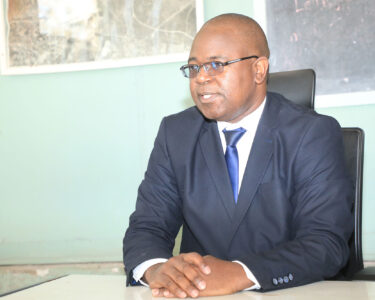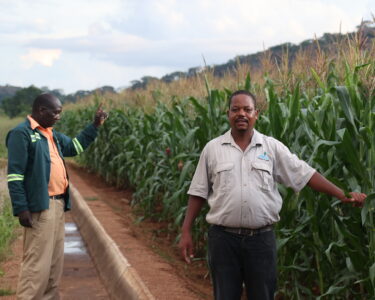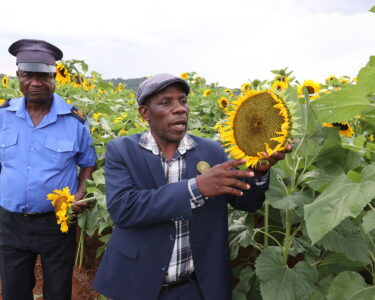As the country’s agricultural sector continues on a growth trajectory, our reporter, Elias Chakanyuka, sat down with the founding president of the Zimbabwe Indigenous Farmers’ Association Trust (Zifat), Depinah Nkomo, to gain a deeper understanding of how women in agriculture are faring. The tough-talking Nkomo, who owns Hopewell Farm, about 72km from Harare along the Harare-Bulawayo Road, is convinced that she has managed to woo thousands of her fellow women into farming. But she insists the battle is not yet over . . .
There is no shortage of farmers’ representative bodies in Zimbabwe. In fact, this has been the case since time immemorial. So why, all of a sudden, a farmers’ body for women specifically, Brick by Brick wanted to know. This is Depinah Nkomo’s story which, she says, is meant “to put things into context”.
“In 2011, farmers were promised inputs at GMB depots across the country. I lived in Waterfalls, so Aspindale depot was the nearest to my home. Me and my fellow farmers literally camped at the GMB Aspindale depot every day, arriving there as early as 3.00am in a bid to get the inputs. We did this for about three weeks, but without success. Each time, we were told that there were no inputs available, yet we could see truckloads of inputs leaving the depot everyday, destined for the black market in Mbare where they sold at exorbitant prices. This annoyed us.
“These were government inputs meant for us, the farmers. Under the scheme, all eligible farmers were entitled to eight bags of Compound D fertiliser and two bags of maize seed each. We were expected to pay for the inputs at a later date.
“This went on for quite some time. Then one day I was mugged in Houghton Park on my way to the depot in the wee hours of the morning. This was the last straw. I said to myself ‘Enough is enough’. A few days later, I walked straight to the boom gate at the entrance to the GMB depot and stood right in front of the trucks that were about to leave the depot loaded with inputs. The security guards threatened to beat me up, but I refused to budge. In fact, I lay flat on the ground and dared the truck drivers to run me over, if they so wished.
“Sensing that I was not going to budge, the depot management offered to address us. After some acrimonious verbal exchanges, they agreed to give us the inputs. But I refused to leave the depot until all the farmers present got their inputs. They did, and everyone was happy.
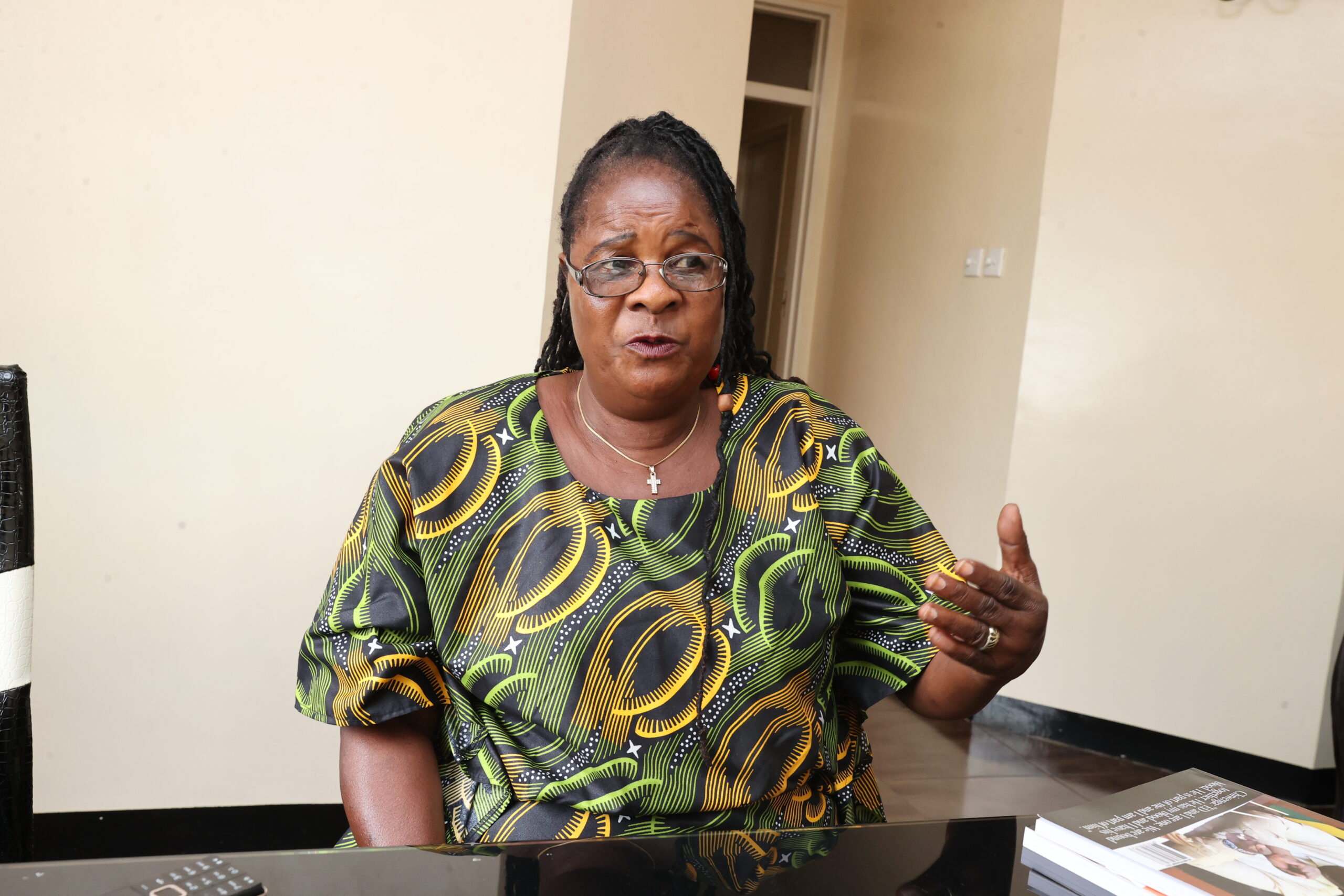
“In the midst of the celebrations, a proposal was mooted for the formation of an organisation to champion women’s rights. I was unanimously elected as its leader. On that very day, the farmers contributed a total of about US$500 as seed money to bankroll the Trust. For the next two months, we held our meetings at the Aspindale depot since we did not have office space.
“The Trust was duly registered on 12 April 2012 and officially launched on 28 August 2012. Zifat’s formation was never planned. Things just happened. This is why I always say the Trust was formed by God.
“The Ministry of Women’s Affairs [Community and Small to Medium Enterprises Development] subsequently helped us to embark on a membership drive across the country. We were the first organisation to fight for the rights of women farmers. The Trust is not a copycat or front for any other organisation. We started it from scratch,” said Nkomo.” Since then, I have been mobilising women to get into farming. At its peak, our membership was around 30 000 across the country. I am delighted to say that more and more women are venturing into farming now.
Getting the Trust of the ground was the easiest part, says Nkomo, outlining some of the unique challenges faced by women farmers.
Says the Zifat boss: “Women were not respected as farmers. In our tradition, a woman cannot own land. She is supposed to work on her husband’s farm. When I challenged this mentality, I became the enemy of many a councillor and headmen in the rural areas. On the other hand, there is also a lot of tanga wandida (favours in return for sex) in the farming sector. I have told women to refuse to be used. I have emphasised to them that we deserve to get land and/or inputs without selling our bodies.”
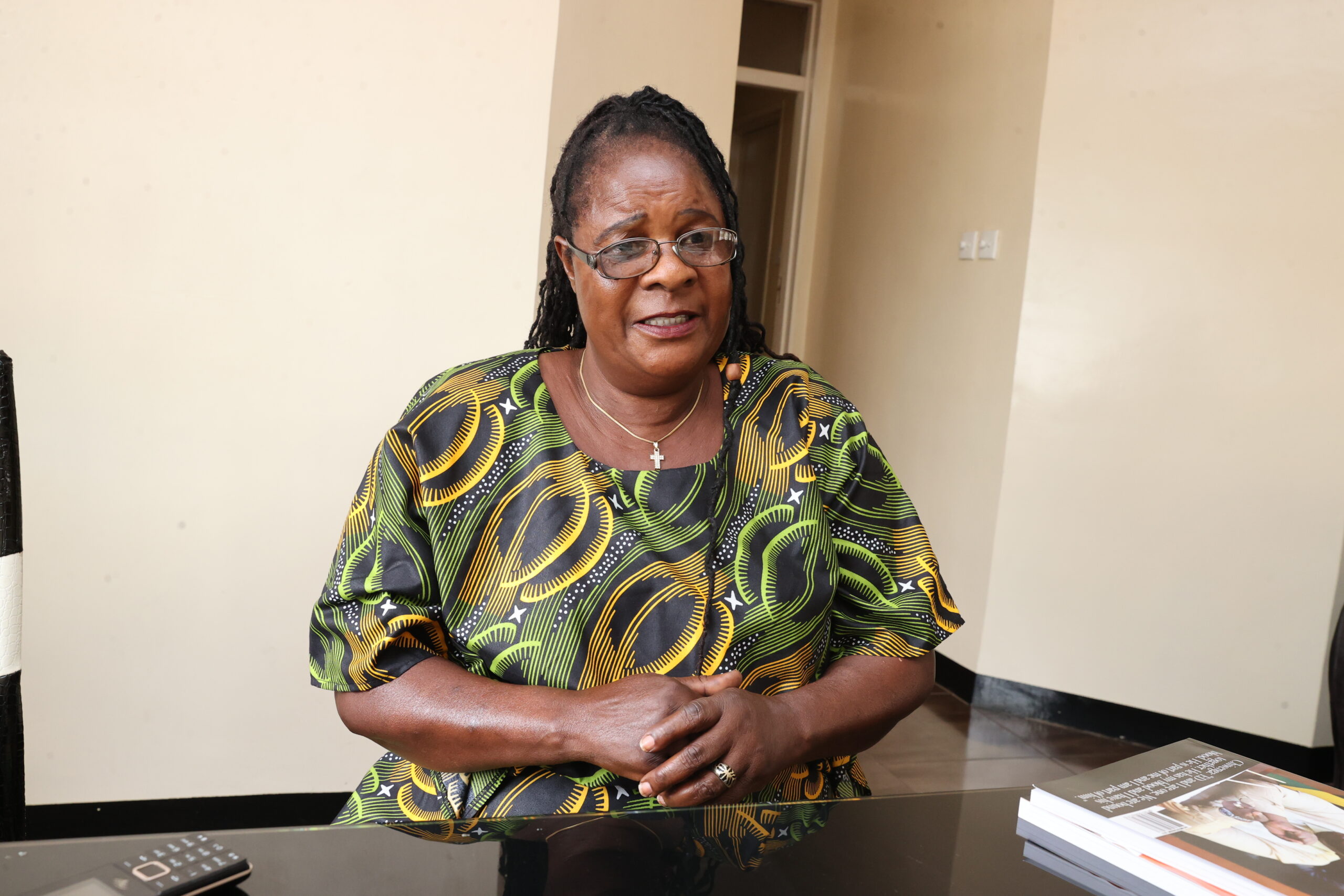
The never-say-never Nkomo has her work cut out for her. “We are still fighting for our rights in other spheres. For instance, financial institutions have not yet changed their attitude towards women farmers. If a man goes to the bank, he gets money without any hassles. The script is different when it comes to women. When white farmers grabbed our land [from our forefathers], they were given massive support by financial institutions. We should have the same support as indigenous women farmers. We have the capacity to pay back, but we need time. They should give us a chance to prove ourselves.
“We fought for the establishment of the Women’s Bank, but it’s not of much help to us because of the need for collateral security. The bank has recommended that we must form clusters in order for us to access loans. We have since done that. However, the problem is that once we get the loan(s) as a cluster, some of the members go AWOL, leaving the rest of in the group in the lurch. As women farmers, we are against these clusters because they are making our lives difficult,” she said.
Nkomo also had an axe to grind as far as the tractors from Belarus are concerned. “We also want the tractors, but we are required to pay 15% upfront. Most women cannot afford this. There is need to find a win-win solution to this dilemma. Why can’t they just give us the tractors and we pay for them after our harvest? They should give us even 100 tractors and see what we can do. I can assure you we will be able to pay back.”
But Nkomo’s gripe goes beyond the availability of tractors for women. “We are now eligible to own pieces of land, but that is not enough. Quite a number of women have A1 farms and we have offer letters. The problem is that the offer letters do not carry any form of guarantee of ownership. If your husband dies, the headman or councillor can dispossess you of the farm just like that. We need to have A1 permits to guarantee the safety of our farms in the event of our departure from this earthly life,” she said, adding: “I am the voice of voiceless women. I am a widow, but I have the energy [to continue doing what I am doing].”
But on a more omnious note, Nkomo told Brick by Brick that there were some political “bigwigs” who are going around farms threatening women farmers, adding that she, too, was a potential target. “If they [unnamed bigwigs] know that a woman owns a farm that they are interested in, all they do is send small-scale miners to lay claim on it on the pretext that it is rich in minerals. They use this strategy to evict the woman, and once she is out of the way, the bigwig settles himself on the farm. I am also a target. Someone wants to take my farm (which I was allocated in 2007), but let me tell you this, they are in for a very big fight. They think they can push me around because I am a widow, but they don’t know my resolve to keep my very productive farm. My sunflower and maize crops are doing very well and I am expecting a very good harvest. [These bigwigs] should leave me in peace.
“Hopewell Farm is my legacy and I am not going anywhere,” she said, with the same air of defiance that characterised her “war” against the corruption she witnessed at GMB Aspindale depot before Zifat was formed.
On the brighter side, the Zifat founding president applauded the Second Republic for organising capacity building workshops for women farmers, through the Ministry of Women’s Affairs. “We thank the government because it has been supporting us a lot through Pfumvudza and Command Agriculture. The Second Republic is doing a great job for women . . .”
However, she had no kind words for “the people on the ground” who continued to deprive women of inputs. “There is no transparency whatsoever in the distribution of farming inputs,” Nkomo complained. She also had a word or two for those who looked down upon women farmers. “It looks like some people still don’t believe that if you empower a woman, you have empowered the whole nation. A woman knows what is required in the home and how to budget. Once a woman manages to run the home well, this will cascade down to the districts, provinces and eventually to the whole nation. Women are very resourceful by nature.”
Despite the challenges facing women farmers and the threat of losing her prized Hopewell Farm to “bigwigs”, Nkomo remains upbeat. “I have empowered women and I am very happy. There are other women’s organisations that have been borne out of our Trust and I don’t have a problem with that. To me, the more the merrier.”



